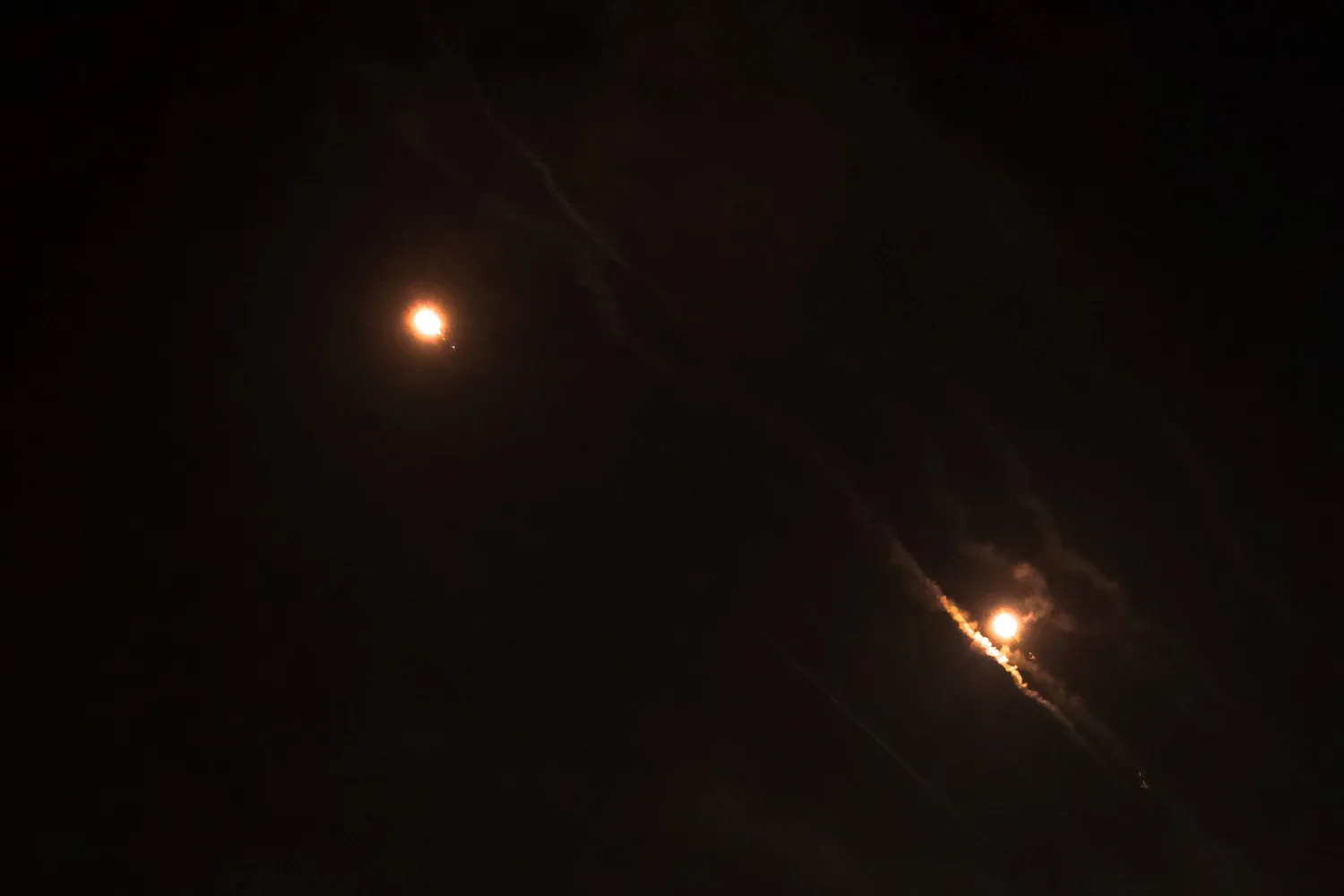Jordan intercepted some flying objects that entered its airspace on Saturday night to ensure the safety of its citizens, a cabinet statement said on Sunday.
Iran launched explosive drones and fired missiles at Israel late on Saturday - its first direct attack on Israeli territory in a retaliatory strike that raises the threat of wider regional conflict, said Reuters.
Jordan, which lies between Iran and Israel, had readied air defenses to intercept any drones or missiles that violated its territory, two regional security sources said.
"Some shrapnel fell in multiple places during that time without causing any significant damage or any injuries to citizens," the Jordan cabinet statement added.
US and British warplanes were involved in shooting down some of the Israel-bound drones over the Iraq-Syria border area, Israel's Channel 12 reported.
Jordan Says It Intercepted Flying Objects that Entered its Airspace

File photo: Objects are seen in the sky above Jerusalem after Iran launched drones and missiles towards Israel, in Jerusalem April 14, 2024. REUTERS/Ronen Zvulun

Jordan Says It Intercepted Flying Objects that Entered its Airspace

File photo: Objects are seen in the sky above Jerusalem after Iran launched drones and missiles towards Israel, in Jerusalem April 14, 2024. REUTERS/Ronen Zvulun
لم تشترك بعد
انشئ حساباً خاصاً بك لتحصل على أخبار مخصصة لك ولتتمتع بخاصية حفظ المقالات وتتلقى نشراتنا البريدية المتنوعة







